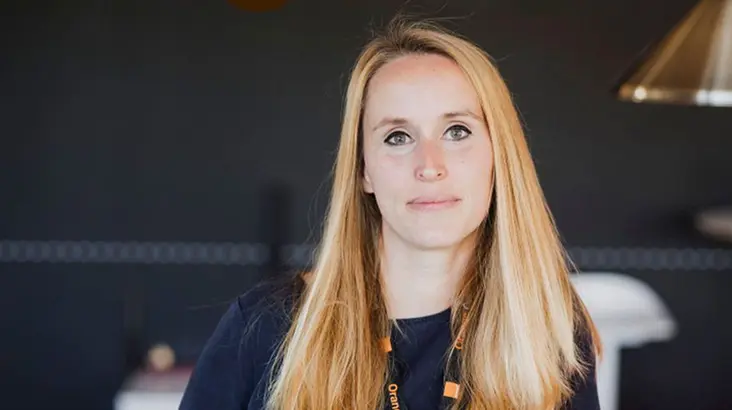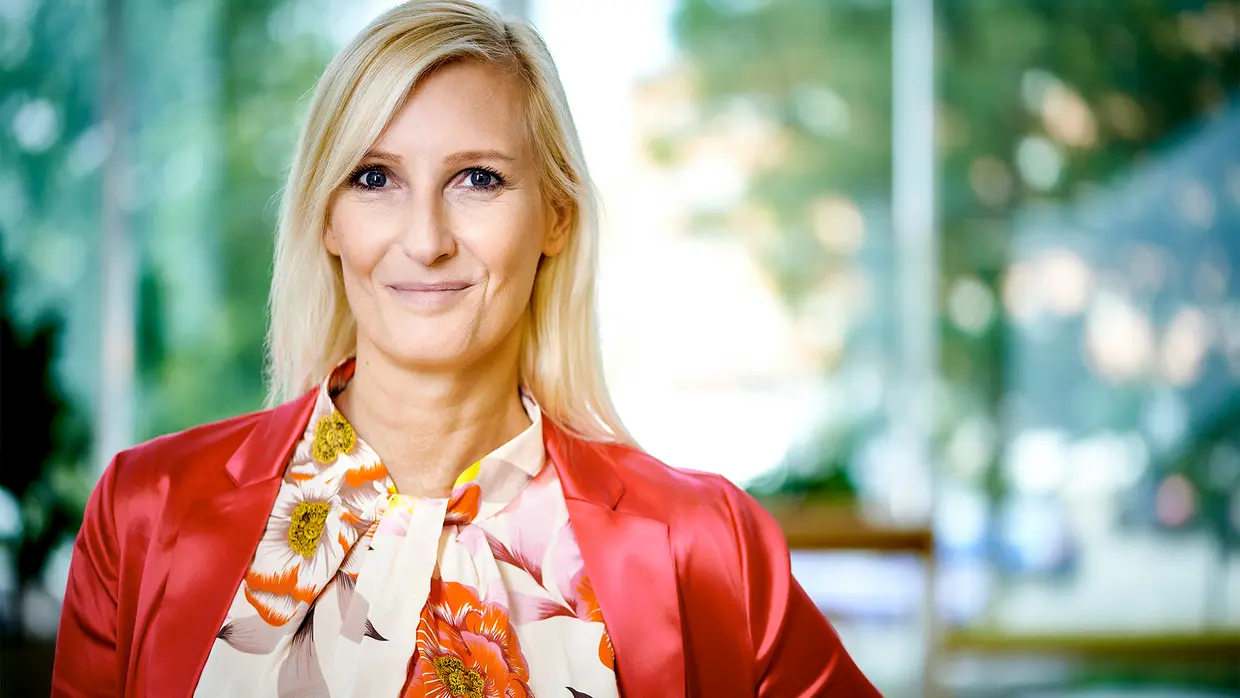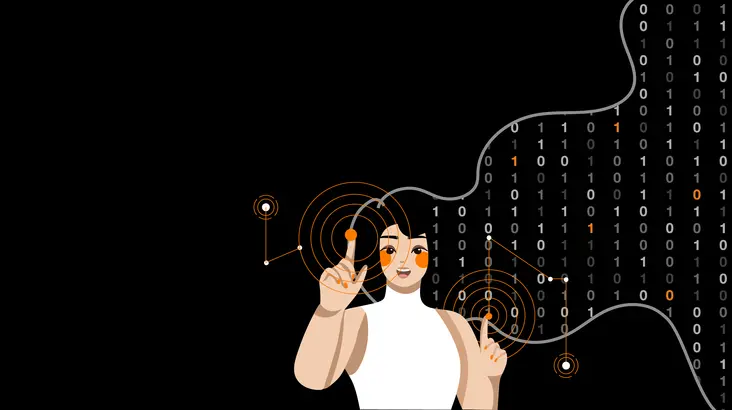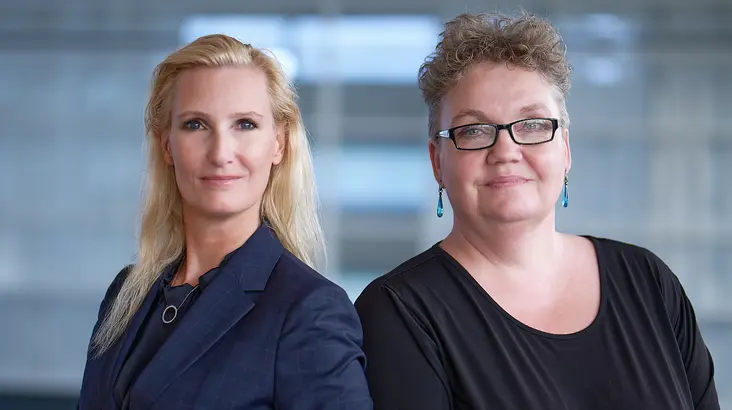
8 March 2022

Denmark is far below the rest of the Nordic countries when it comes to equality, diversity and inclusion in the working life. Now we have to accelerate the process, says Sanne Aagaard, Marketing Manager at Orange Cyberdefense Denmark.

The Nordic countries Iceland, Finland, Norway and Sweden occupy four of the top five places in the World Economic Forum's Global Gender Gap Report for 2021. This means that the Nordic countries generally have the smallest gender differences in the world, despite the fact that they have to continue working on this to improve even further. But someone is missing.
Denmark ends up at the bottom of the list with 29th place in the ranking. They also perform worst in the Nordic countries when looking at the OECD's statistics for the proportion of women in management positions. This is completely unacceptable, says Sanne Aagaard, Marketing Manager at Orange Cyberdefense Denmark.
- Both I personally, and the company I work for, believe it is important to do everything we can to improve the gender balance internally throughout the business. I value employers who put this on their agenda, and who have made this part of their business strategy. That's one of the reasons I chose to be part of Orange Cyberdefense. Here you notice that diversity and inclusion are high priorities and part of the DNA of the business, she says.
Although Sanne has an employer who makes a real effort for diversity and inclusion, she is passionate about improving the conditions elsewhere in the Danish working life.
It is of course very good that diversity and inclusion get a lot of attention in the media around International Women's Day every year. At the same time, Sanne finds it worrying how little attention this topic receives the rest of the year. Although many Danish companies have this as a key figure indicator (CPI), relatively few succeed in making diversity and inclusion a priority in the company's overall strategy.
- It is probably due to structural, historical and cultural patterns that affect our way of thinking and the choices we make. Another reason is probably that far too few, and perhaps especially male leaders, are not particularly interested or engaged in the topic, she says.
Sanne suspects that this is one of the main reasons why Denmark has a lower proportion of women in management positions than the other Nordic countries - especially in the technology and security industry.
- This is a pattern I also recognize from our own organization in Orange Cyberdefense Denmark. We, like everyone else in the industry, are struggling to attract enough women to many of the positions in security analysis and pen-testing. We also often have difficulty recruiting female managers to our management team, despite the fact that we offer very good and flexible working conditions. On the other hand, we are lucky to have strong female expertise in sales, finance, HR and marketing, says Sanne.
The low proportion of female top managers is worryingly low in many countries, including here in the Nordic countries. This is not only a problem in terms of gender equality, it is also an economic problem - both for each individual company and for the world community as a whole.
- If we only use half of the talents in the population, which mainly consists of men, we will miss an enormous number of good ideas, opportunities and innovation in the future, says Sanne.
She emphasizes that more diversity in both management and other departments will create better financial results and have a positive impact on the company's growth and development - both in the short and long term.
- We must be able to illustrate this in a valuable way to the top management. If not, it will be difficult to catch their attention and motivate them to take the steps needed to correct the imbalance.
Sanne fears that for several years we have established a work ethic and a value system that is based on cultural norms, and recognizes the masculine personality traits as the most beneficial. This seems to be difficult to break down.
- The consequence is that this has created a barrier for some qualified women, who find it more difficult to be considered for the same management positions as their male counterparts. Since women are already at risk of being overtaken by promotions and other job opportunities early in their careers, it can be difficult for them to fulfill their ambitions, reach their goals and realize their full potential. These barriers seem to be difficult to break down, but I think it is important that we continue to try, says Sanne.
She points out that the solution must be that we remove the obstacles and way of thinking that leads to a skewed gender balance and a lack of diversity and inclusion, both in working life and society in general. Although this has been talked about for years, she is determined that it is too early to give up yet.
- Such changes do not happen overnight. It is easier said than done, but it is not rocket science to attract more women to leadership positions and create a better gender balance, she emphasizes.
- I have no doubt that the battle for more diversity and inclusion is a battle that is possible to win. But before we can hope for a better gender balance and equality for all, we must motivate both female and male leaders to take responsibility.
But she believes, among other things, that more people must dare to stand out as role models. Because we need authentic role models who use their voice. Leaders who dare to risk their position and invest part of their personal brand in the debate. Especially if they know they are in a position where they can make a difference.
- There is still a lot left to work on, Rome was not built in one day. But the time has come to step on the accelerator a little harder so that we can speed up the process. I think we deserve that, concludes Sanne Aagaard, Marketing Manager at Orange Cyberdefense Denmark.
Read more inspiring stories
8 March 2022

6 September 2023
Kamilla Sørmo and Katrine Krogedal

27 October 2023
Kaja Narum


7 July 2023
Sanne Aagaard, Marketing Manager & Bettina Nyberg, HR Manager